Do Diet Drinks Cause Gas
Enjoying the taste of diet soda is proof that you can train your tastebuds to like kale, Brussels sprouts, or any of those bitter-tasting vegetables of the cruciferous family that you should be eating.
All you needed was a little incentive—like trimming calories and losing weight—to help you over the hump of that weird, super-sweet aspartame aftertaste. Aspartame—like sucralose, acesulfame potassium, and saccharin—are all examples of artificial sweeteners that can have some surprising side effects on your health.
If you were a sugary beverage drinker beforehand, you may have found that switching to zero-calorie diet drinks eventually helped you to slim down. Or maybe not. Either way, now that you're hooked on diet, you might be interested in knowing some surprising ways drinking diet soda may affect your body. Read on to learn more, and you may also want to consider subbing your diet soda for any of these 5 Beverages That Can Add Years to Your Life, According to Science.
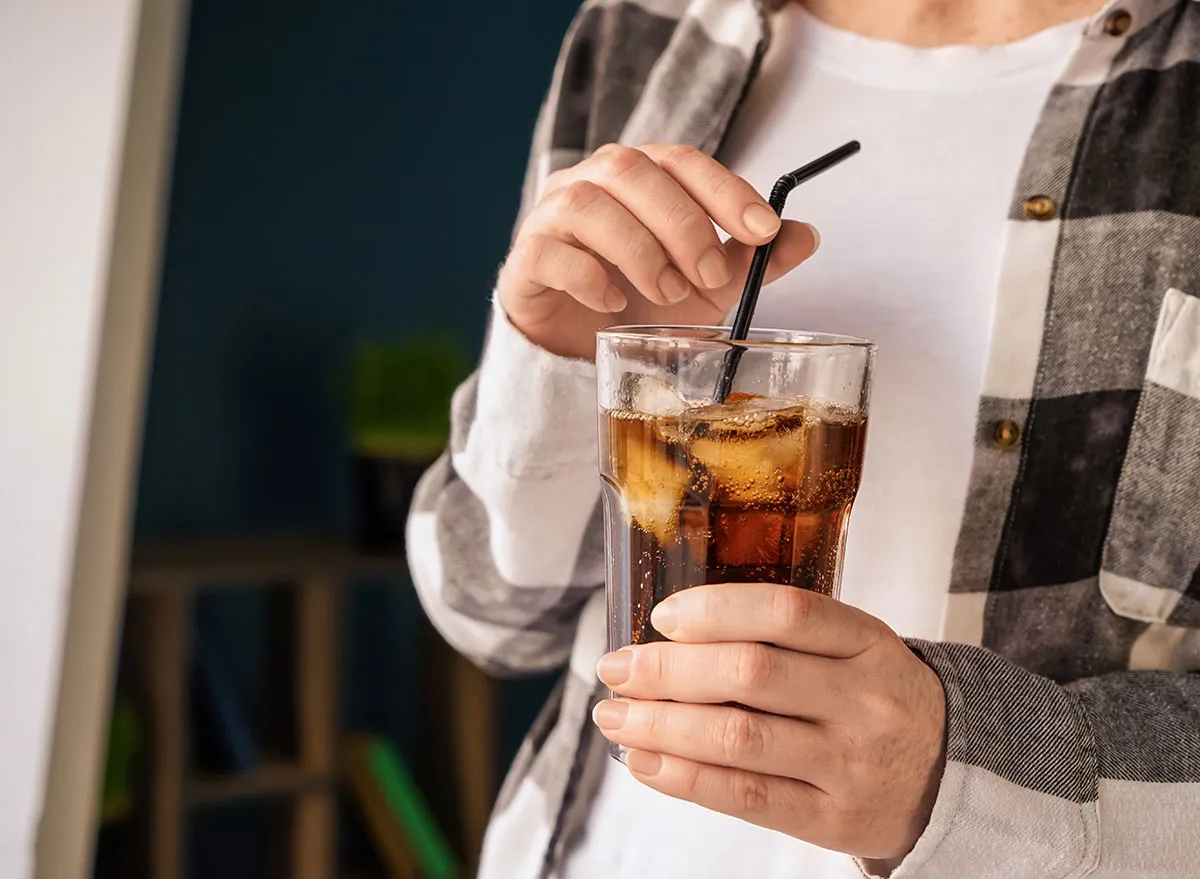
"Many people turn to diet sodas for weight loss, but they can have the opposite effect," says board-certified obesity expert Sylvia Gonsahn-Bollie, MD, the lead physician at Embrace You Weight & Wellness.
Studies have shown that artificial sweeteners like sucralose and aspartame are associated with weight gain and obesity. For example, a Journal of the American Geriatrics Society study showed that people who drank diet soda every day experienced a waist circumference gain three times greater than people who didn't drink diet soda over the course of the nearly 10-year-long investigation. How is it that something called "diet" can cause weight gain? Dr. Gonsahn-Bollie points to several possible mechanisms:
The extra-sweetness of artificial sweeteners "increases sugar cravings and 'hedonistic behaviors,'" she says. "I always hate to use this phrase because it feels so judgmental. But basically, it means [the artificial sweetener] increases our tendency to overeat past our body's satisfaction levels."
Insulin resistance. Some studies have shown that certain artificial sweeteners such as sucralose still negatively affect the response of insulin, the hormone used to help the sugar molecules enter the cells in the body. Insulin insensitivity or insulin resistance has been associated with obesity, diabetes, and other medical conditions.
Slowed metabolism. "Artificial sweeteners aren't easily metabolized by the liver, which can lead to other metabolic and hormonal changes that trigger weight gain and lead to obesity," says Dr. Gonsahn-Bollie.
RELATED: Sign up for our newsletter to get daily recipes and food news in your inbox!
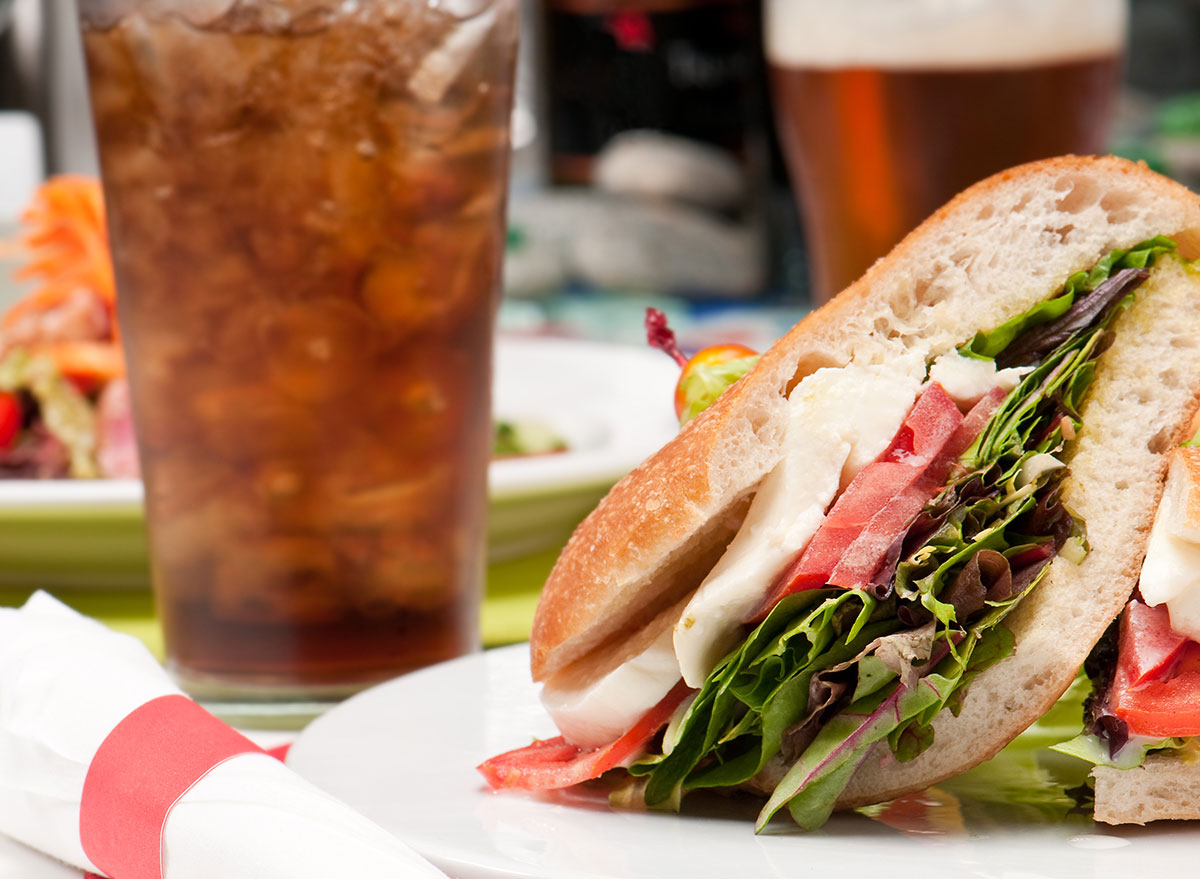
Even if that diet beverage you drink with a meal doesn't trigger your desire for seconds, it could impact your hunger later on. "Studies have shown that consumers of artificial sweeteners eat more calories during the meal following," says Trista Best, RD, a registered dietitian nutritionist at Balance One Supplements.

You know that the sugars in soda and other sugary beverages can give you cavities, so you may think switching to diet beverages is the answer. Well, sugar-free drinks may cause the same amount of dental erosion as their sugary sisters, according to a study in Operative Dentistry. Researchers found that diet sodas contain phosphoric acid, the same acid found in sugary soda that can weaken tooth enamel and cause decay over time. The pH of saliva ranges from 5.5 to 6.5. The acids in diet sodas can drop saliva pH to below 5.5, the threshold at which more rapid demineralization of enamel occurs, say researchers. Sipping soda through a straw and rinsing your mouth with water will help protect teeth. So will brushing, but wait an hour after drinking sugary or diet sodas to allow your saliva to return to neutral pH before brushing, dentists say.
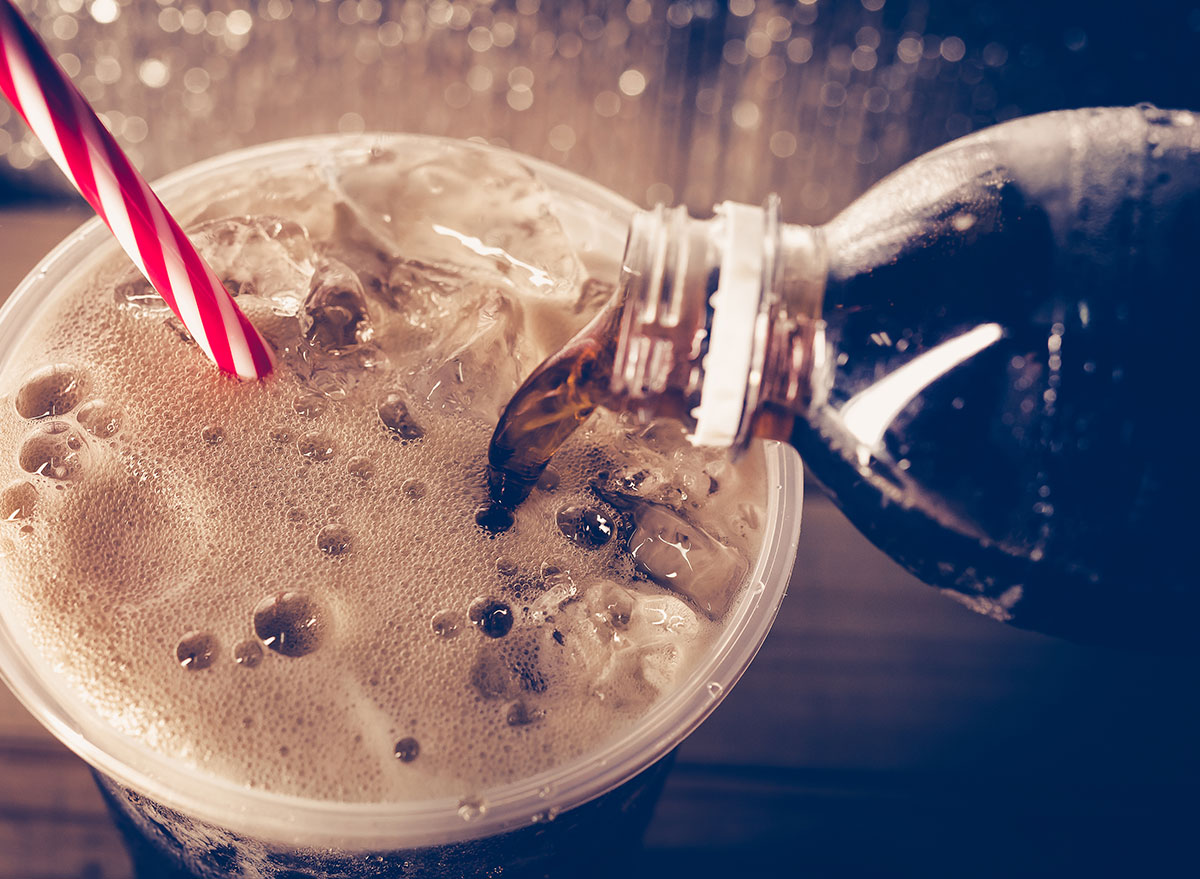
The carbonation in sodas has been long known to contribute to bloating. We're sure you've felt the effects of a can of soda on your belly. "But diet sodas contain another component that leads to bloating, artificial sweeteners," says nutritionist Lisa Richards, author of The Candida Diet. "Sucralose, the most common culprit of gas causes gastrointestinal irritation and bloating. It also reduces the healthy gut bacteria that prevents bloating," she adds. For example, oneAdvances in Nutrition review noted that a few artificial sweeteners could reduce bacterial diversity of the microbiome and inhibit the growth of beneficial bacteria: two key identifiers of a healthy gut. (Related: Popular Drinks That May Cause Lasting Damage to Your Gut.)

"Artificial sweeteners change the microbiology in our gut in a way that can lead to obesity," says Dr. Gonsahn-Bollie. "I generally advise my weight-loss patients to avoid them."
"Artificial sweeteners can adversely affect your gut microbes creating a leaky gut," warns biochemist Barry Sears, PhD, creator of the Zone diet. Leaky gut is the popular term for the increased permeability of the intestinal lining, where small holes or cracks allow partially digested food particles and toxins to leak into the body and trigger inflammation and changes in healthy gut flora, causing a host of health problems.
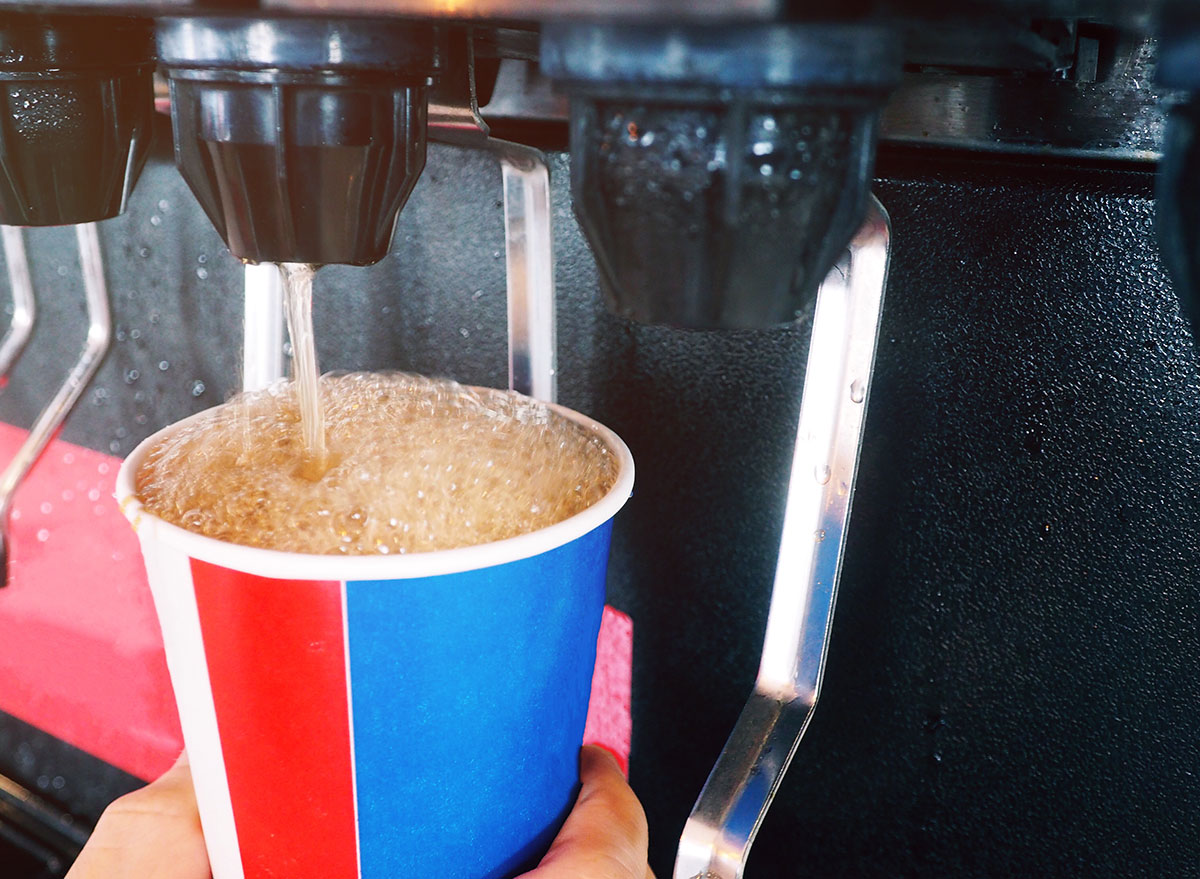
Consuming too many cans of diet soda in a sitting can have a combo effect on your gut that can trigger the runs. "People often tend to pair diet soda with high-fat, high-calorie foods like a burger and fries or movie theater popcorn (because they think they are saving a lot of sugar)," says Andrea Ovard, RD, a nutritionist with IdealFit. The combination of GI irritation from the artificial sweeteners and heavy, fatty foods can cause cramping and diarrhea. While diet drinks consumed in moderation may not have serious negative side effects, water is a better way to stay hydrated, she says.
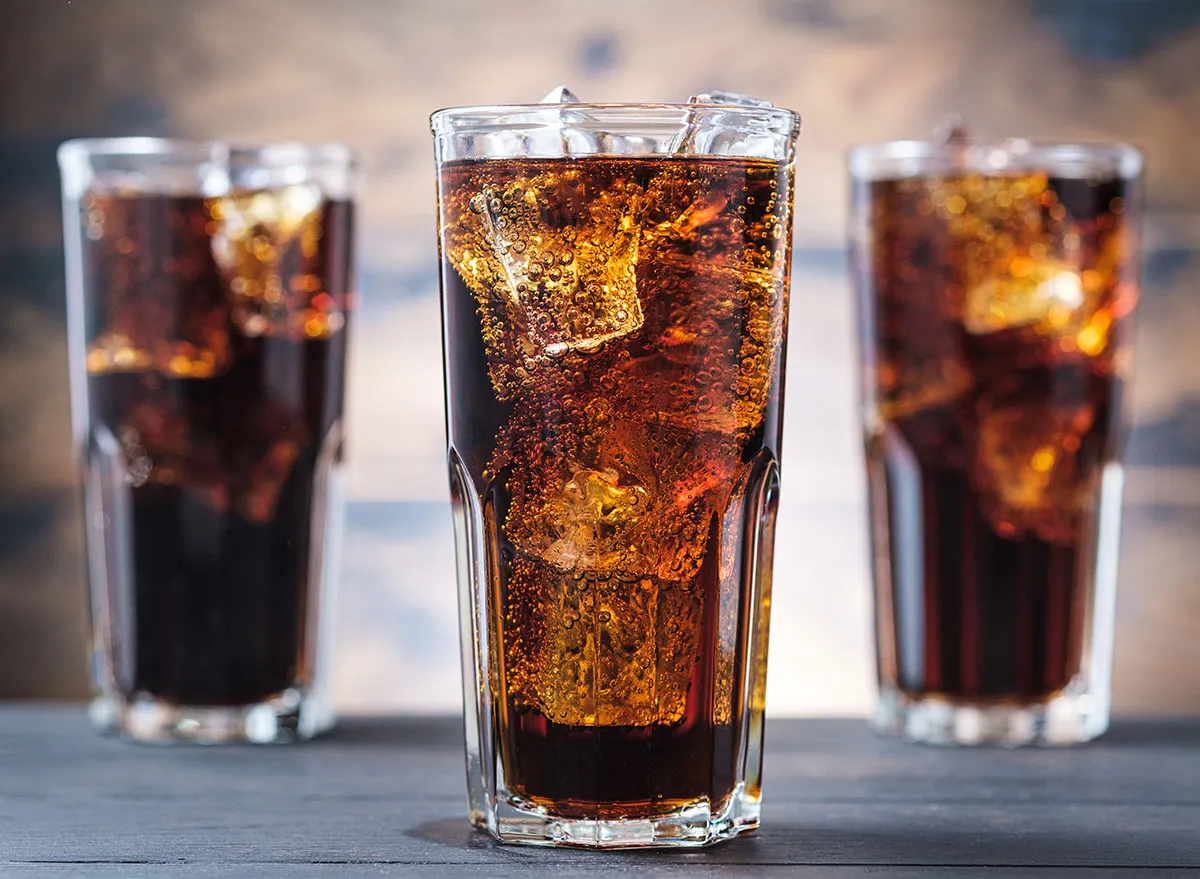
The high fructose corn syrup in a lot of sweet beverages is known to be associated with non-alcoholic fatty liver disease, where too much fat is stored in the liver. But, surprisingly, more research is connecting diet soda with the disorder. One study in The Canadian Journal of Gastroenterology that looked at consumers who drank either regular Coca-Cola, Diet Coke, or sweetened fruit beverages found an association between Diet Coke and fatty liver disease.

An increasing body of evidence indicates that diet soda intake is associated with an elevated risk of developing a variety of medical problems, including heart failure, high blood pressure, metabolic conditions like diabetes, dementia, stroke, and nonalcoholic fatty liver disorder. "However, few trials have adequately accounted for other contributing factors for serious health problems, such as obesity or a sedentary lifestyle," explains Linda Khoshaba, NMD, founder of Natural Endocrinologist Specialists in Scottsdale, Arizona. "As a result, [researchers] might overlook the reality that individuals who consume soda might have an increased risk of developing health problems regardless of their beverage selection. For instance, an individual might be consuming diet soda in order to lose weight if they have a high body mass index." Also, she says, people who drink diet soda may be more likely to eat foods that may pose health risks, like these Popular Foods Proven to Cause Lasting Damage to Your Body, Says Science.
Source: https://www.eatthis.com/what-happens-drink-diet-soda/